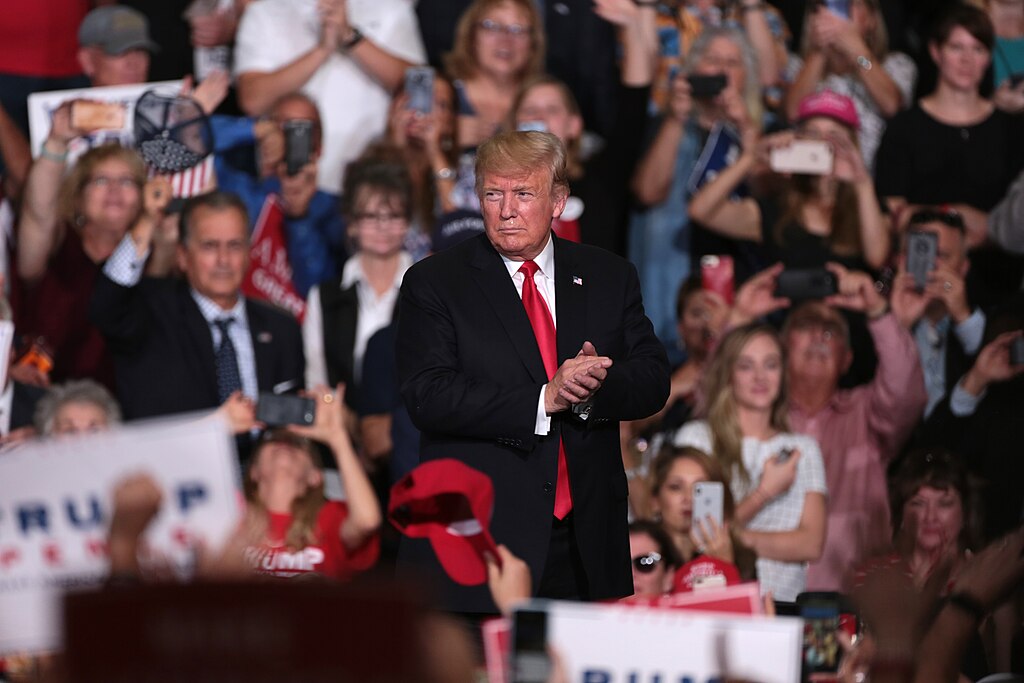As Donald Trump prepares to return to the White House in January 2025, his administration has revealed ambitious plans to regulate and expand the use of artificial intelligence (AI) in healthcare. Trump’s proposals aim to modernize medical systems, increase efficiency, and reduce healthcare costs. However, the initiative has sparked fierce debate among industry experts and policymakers, with critics questioning the practicality of his promises.
The former president's strategy emphasizes enhancing the integration of AI technologies in diagnostic tools, medical research, and patient care. During his campaign, Trump described AI as the "future of healthcare," positioning his administration as a leader in advancing digital innovation while addressing concerns about privacy and ethical misuse.
Despite these promises, skeptics argue that AI’s application in healthcare remains riddled with challenges, including data privacy risks, biases in machine learning algorithms, and regulatory hurdles. Trump’s detractors warn that the administration’s optimistic timeline may overlook the complexities of implementing AI at scale.
Regulation and Innovation: A Balancing Act
Trump’s plan includes creating a dedicated task force within the Department of Health and Human Services (HHS) to oversee AI adoption in healthcare. The task force would collaborate with private companies, universities, and government agencies to draft ethical guidelines and establish technical standards.
A key focus is on streamlining approval processes for AI-powered medical devices through the Food and Drug Administration (FDA). Trump’s team aims to reduce bureaucratic delays, ensuring quicker access to life-saving technologies. Proponents of the plan highlight the potential benefits, including early disease detection and personalized treatment plans.
Additionally, the administration has proposed substantial investments in training healthcare professionals to use AI tools effectively. Trump's policy also emphasizes patient data protection, calling for stringent cybersecurity measures to prevent breaches and misuse of sensitive information.
While these measures are welcomed by some, critics remain wary of potential pitfalls. Data bias in AI algorithms could lead to unequal healthcare outcomes, especially for underserved communities. Privacy advocates also question whether the administration can guarantee adequate safeguards against the misuse of personal medical data.
Public Reactions: Support and Skepticism
Social media users have been vocal about Trump’s AI healthcare initiative, expressing a range of opinions:
- @AI_MedicalReform: “Finally, a plan to bring healthcare into the 21st century. Trump’s AI vision could save lives!”
- @DataRightsNow: “Trump’s track record on privacy is shaky. Can we really trust him to protect patient data?”
- @InnovationMatters: “Streamlining FDA approvals for AI tools is a game-changer. This could accelerate innovation!”
- @EthicsInAI: “What about AI biases? Trump’s plan needs to address discrimination in healthcare outcomes.”
- @HealthAdvocate2025: “This is a pipe dream. AI in healthcare isn’t ready for mass adoption yet.”
- @PrivacyProtector: “Patients’ data privacy must come first. Trump’s plan needs stronger safeguards against corporate exploitation.”



 Australian PM Calls Alleged Western Australia Terror Plot “Deeply Shocking” After Arrest
Australian PM Calls Alleged Western Australia Terror Plot “Deeply Shocking” After Arrest  Pentagon to Halt Ivy League Programs for U.S. Military Officers Starting 2026
Pentagon to Halt Ivy League Programs for U.S. Military Officers Starting 2026  HHS Adds New Members to Vaccine Advisory Panel Amid Legal and Market Uncertainty
HHS Adds New Members to Vaccine Advisory Panel Amid Legal and Market Uncertainty  Iran Supreme Leader Ayatollah Ali Khamenei Killed in Israeli, U.S. Strikes: Reuters
Iran Supreme Leader Ayatollah Ali Khamenei Killed in Israeli, U.S. Strikes: Reuters  Macron Urges Emergency UN Security Council Meeting as US-Israel Strikes on Iran Escalate Middle East Tensions
Macron Urges Emergency UN Security Council Meeting as US-Israel Strikes on Iran Escalate Middle East Tensions  Trump Launches Operation Epic Fury: U.S. Strikes on Iran Mark High-Risk Shift in Middle East
Trump Launches Operation Epic Fury: U.S. Strikes on Iran Mark High-Risk Shift in Middle East  Trump Warns Iran as Gulf Conflict Disrupts Oil Markets and Global Trade
Trump Warns Iran as Gulf Conflict Disrupts Oil Markets and Global Trade  Germany and China Reaffirm Open Trade and Strategic Partnership in Landmark Beijing Visit
Germany and China Reaffirm Open Trade and Strategic Partnership in Landmark Beijing Visit  Trump Floats Ted Cruz for Future U.S. Supreme Court Nomination
Trump Floats Ted Cruz for Future U.S. Supreme Court Nomination  Venezuela Oil Exports to Reach $2 Billion Under U.S.-Led Supply Agreement
Venezuela Oil Exports to Reach $2 Billion Under U.S.-Led Supply Agreement  Trump Orders Federal Agencies to Halt Use of Anthropic AI Technology
Trump Orders Federal Agencies to Halt Use of Anthropic AI Technology  Russia Signals Openness to U.S. Security Guarantees for Ukraine at Geneva Peace Talks
Russia Signals Openness to U.S. Security Guarantees for Ukraine at Geneva Peace Talks  U.S.-Israel Strike on Iran Escalates Middle East Conflict, Trump Claims Khamenei Killed
U.S.-Israel Strike on Iran Escalates Middle East Conflict, Trump Claims Khamenei Killed  Israel Launches Fresh Strikes on Iran After Death of Supreme Leader Ayatollah Khamenei
Israel Launches Fresh Strikes on Iran After Death of Supreme Leader Ayatollah Khamenei  Trump Media Weighs Truth Social Spin-Off Amid $6B Fusion Energy Pivot
Trump Media Weighs Truth Social Spin-Off Amid $6B Fusion Energy Pivot  Dominican Republic Unveils Massive Rare Earth Deposits to Boost High-Tech and Energy Sectors
Dominican Republic Unveils Massive Rare Earth Deposits to Boost High-Tech and Energy Sectors  Netanyahu Suggests Iran’s Supreme Leader Khamenei May Have Been Killed in Israeli-U.S. Strikes
Netanyahu Suggests Iran’s Supreme Leader Khamenei May Have Been Killed in Israeli-U.S. Strikes 
































